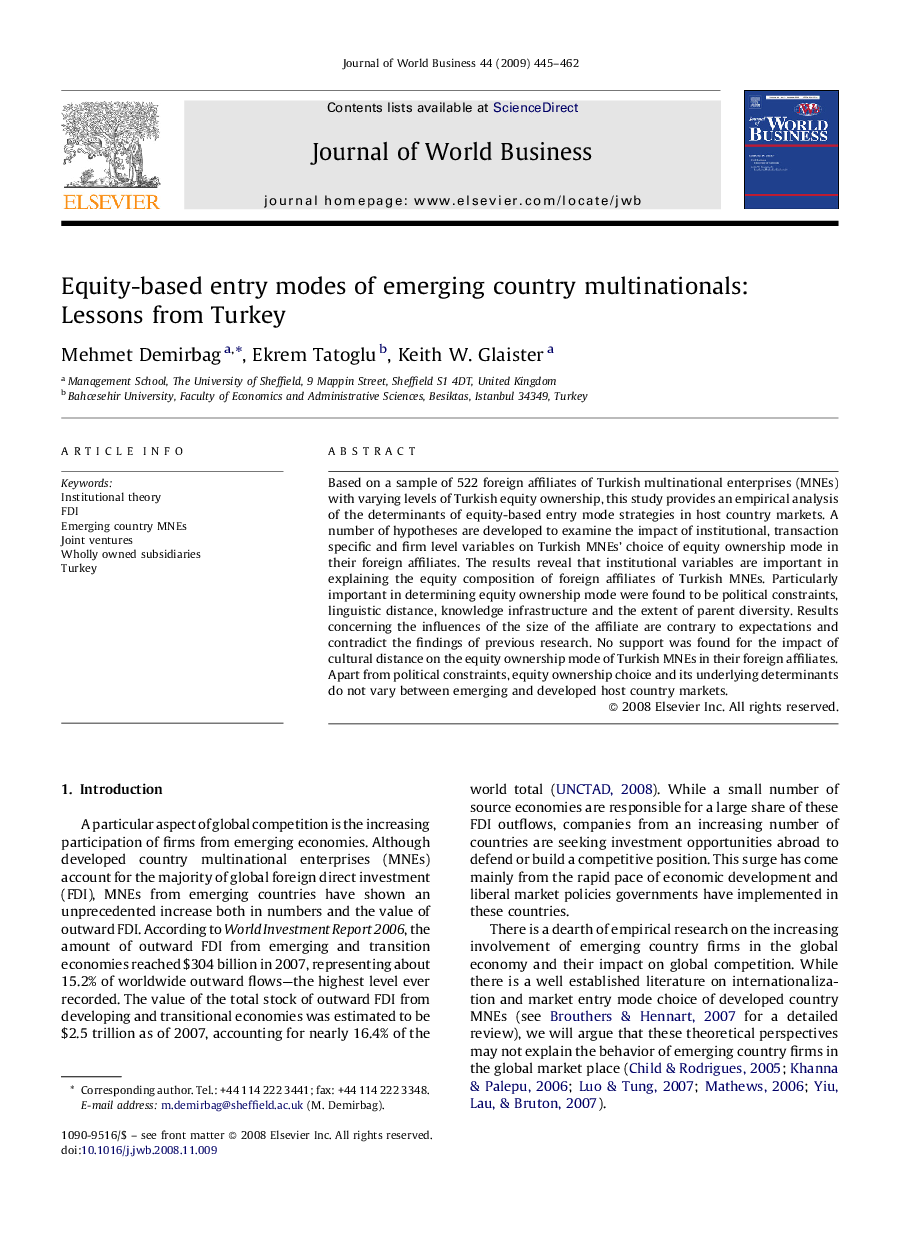| Article ID | Journal | Published Year | Pages | File Type |
|---|---|---|---|---|
| 1002262 | Journal of World Business | 2009 | 18 Pages |
Based on a sample of 522 foreign affiliates of Turkish multinational enterprises (MNEs) with varying levels of Turkish equity ownership, this study provides an empirical analysis of the determinants of equity-based entry mode strategies in host country markets. A number of hypotheses are developed to examine the impact of institutional, transaction specific and firm level variables on Turkish MNEs’ choice of equity ownership mode in their foreign affiliates. The results reveal that institutional variables are important in explaining the equity composition of foreign affiliates of Turkish MNEs. Particularly important in determining equity ownership mode were found to be political constraints, linguistic distance, knowledge infrastructure and the extent of parent diversity. Results concerning the influences of the size of the affiliate are contrary to expectations and contradict the findings of previous research. No support was found for the impact of cultural distance on the equity ownership mode of Turkish MNEs in their foreign affiliates. Apart from political constraints, equity ownership choice and its underlying determinants do not vary between emerging and developed host country markets.
